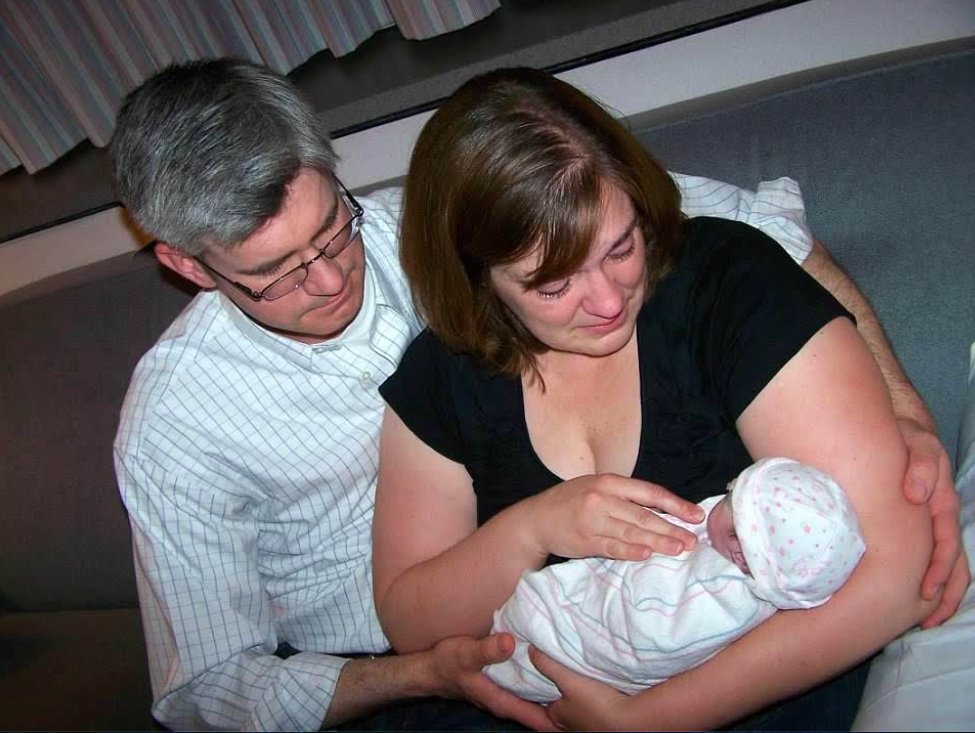
WASHINGTON —The Texas woman who sought a court order for an exemption to the state’s abortion ban last December was a major news story across the country.
Kate Cox, the 31-year-old Dallas woman and mother of two, had requested the court order because her fetus was diagnosed with a fatal genetic abnormality, known as trisomy 18, that often results in stillbirth or early death.
A lower court would have allowed the procedure under narrow exceptions to the state’s abortion ban, but the state’s attorney general asked the state’s Supreme Court to intervene.
Days later, the state’s high court ruled that she could not have the abortion, but the Dallas woman had already left the state to obtain the procedure in another state.
Public support for Cox ran high with many expressing in online forums and newspaper columns that the compassionate thing to do would have been to let her make her own decision in this circumstance.
Her appeal also highlighted a very real challenge that many couples face when they receive an adverse prenatal diagnosis and learn that their unborn baby might be stillborn or die soon after birth due to a fetal abnormality.
When couples receive this type of diagnosis, some are advised to consider ending their pregnancy and have chosen to do so. Others have not, finding that delivering their child, holding their infant, and then going through the painful burial process brings them healing.
Across the country, some couples have turned their experience of working through this challenge to forming organizations to help others facing similar crises.
One such group is Abel Speaks, outside of Dallas. The group was founded by Kelly and Daniel Crawford, who received a fatal diagnosis for their son Abel in 2016 and wanted to help others in similar circumstances.
This group was mentioned by the pro-life advocacy group, Texas Right to Life, in response to the court decisions about Cox’s abortion appeal. The advocacy group said it wanted to spread awareness about resources for parents facing severe fetal diagnosis through nonprofit groups like Abel Speaks.
The Texas group offers mentors for those seeking emotional and spiritual support, connections to medical providers who can help, commemorative keepsakes or photos of the couple’s child, and help with planning a funeral or memorial service.
They also offer community retreats and other resources.
Similar groups exist around the country. The website catholicmiscarriagesupport.com, designed by two Catholic couples, has a special section for adverse prenatal diagnoses that lists some of these groups and other available materials.
“If you were recently given an adverse or terminal prenatal diagnosis for your child, you may not know where to turn. Here are a few resources that may be able to help you navigate this difficult time,” the site says, adding that the resources they list are all Catholic “and therefore uphold the dignity of life in all its stages.”
They mention the groups: Be Not Afraid, at benotafraid.net, in the Diocese of Charlotte, North Carolina, which provides “comprehensive, practical, and peer-based support to parents experiencing a prenatal diagnosis and carrying to term,” and Isaiah’s Promise, isaiahspromise.net based in the Washington, D.C., area that was founded by three moms and offers several resources. They also list the Minnesota group, Prenatal Partners for Life, prenatalpartnersforlife.org and Elizabeth Ministry International which sells the book “Our Unborn Baby Has a Problem” on its website: shopelizabethministry.mybigcommerce.com/our-unborn-baby-has-a-problem-booklet.
Other resources are also available to couples including the newly formed Prenatal Diagnosis Initiative, which is a group of pregnancy support organizations under the website prenataldiagnosis.org.
The website also links users to Heartbeat International, a network of pro-life pregnancy resource centers in the U.S., and its helpline that connects parents facing a diagnosis to a parent care coordinator in their region.
In announcing this new service last fall, Gary Thome, Heartbeat International board member, said that parents who have received an adverse prenatal diagnosis for their unborn child “deserve to receive the best information available regarding carrying their child to term and an offer of support in walking the journey.”
